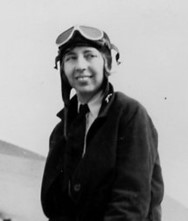Rationale for Inclusion
- First Female Flight Attendant: Ellen Church holds the distinction of being the world’s first female flight attendant, a role she began in 1930. Her employment marked the beginning of a new era in the airline industry, establishing the role of flight attendants, which became crucial for passenger service and safety.
- Innovative Vision: Church, a registered nurse, approached Boeing Air Transport (a predecessor of United Airlines) with the idea that women with nursing backgrounds could serve as flight attendants, providing medical care and reassurance to passengers. This innovative proposal was instrumental in shaping the modern flight attendant profession.
- Enhancing Passenger Comfort and Safety: Church’s initiative significantly improved passenger comfort and safety. Having flight attendants on board helped alleviate passenger fears and promoted the idea that flying was safe and manageable. Her presence and the services provided by flight attendants helped to humanize air travel and make it more appealing to the general public.
- Paving the Way for Women in Aviation: By breaking into a male-dominated industry, Church paved the way for future generations of women in aviation. Her pioneering efforts demonstrated that women could perform essential roles in the airline industry, leading to greater gender diversity and opportunities for women in various aviation careers.
- Legacy of Professionalism and Care: Church’s background as a nurse brought a level of professionalism and care to the role of flight attendants. This emphasis on passenger well-being and safety set high standards for the industry and remains a core aspect of flight attendant duties today.
- Cultural Impact: Ellen Church’s role as the first female flight attendant captured the public’s imagination and helped change societal perceptions about women’s capabilities in professional settings. Her story inspired many women to pursue careers in aviation and other fields previously dominated by men.
- Continued Influence: The role of flight attendants, initially shaped by Church’s vision, continues to be vital in the airline industry. The importance of their work in ensuring passenger safety, providing medical assistance, and delivering exceptional customer service underscores Church’s lasting impact on aviation.

Biography
- Early Life: Born in 1904 in Cresco, Iowa, Church knew from an early age that she wanted to fly. After graduating from high school, Church earned a degree in nursing from the University of Minnesota in 1926. She moved to San Francisco to work as a registered nurse in the French Hospital. There, she fulfilled her dream by taking flying lessons and earning her private pilot’s license.
- Flying Career: in 1930 Church went into the Boeing Air Transport Office (a forerunner of United Airlines) to ask for a job. She wanted to be a pilot, but the airline only hired male pilots. Steve Simpson, the district manager in the San Francisco office, however, told her the airline planned to hire male stewards like those on some European airlines. Seeing an opportunity, Church convinced Simpson to hire her by touting her nursing skills as a way to ease passenger fears of flying. Boeing headquarters agreed to give Church a three-month trial and told her to hire seven other nurses to work on the planes. She served in this role for 18 months, as an unfortunate automobile incident ended her career.
- World War II: In 1936, she became supervisor of pediatrics at Milwaukee County Hospital. During World War II, Church served in the Army Nurse Corps as a captain and flight nurse and earned an Air Medal.
- Later Career: Ellen moved to Terre Haute, Indiana, where she became director of nursing and later an administrator at Union Hospital.
